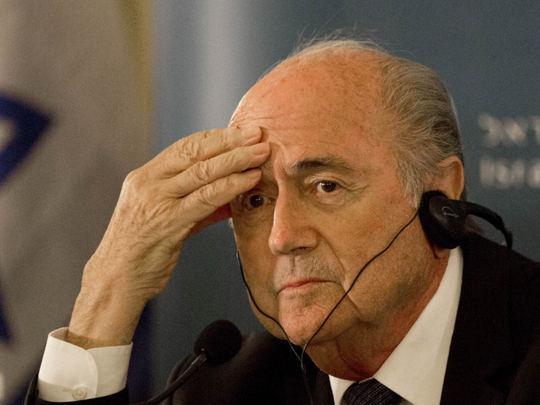
Commenting on the re-election of Blatter, the Guardian said: “World football’s governing body had its big chance today [Friday]. But it blew it. The ball was at Fifa’s feet. The global audience was gripped. The goal was gaping wide. At which point Fifa fell on its face.” The newspaper said in an editorial that football’s global governing body “could have responded to the arrests of many of its top executives by showing that it grasps what has finally happened to the credibility of world football”.
However, it also weighed in on the bigger picture of the global sport, observing: “Mr Blatter survived because so many interests, not just his own, are bound into the system over which he presides. These interests go far beyond the kickbacks and corruption of individuals, important though that is. They include the national benefits to football in the developing nations, some of them large ones, that secure Mr Blatter’s regime. They also include the huge commercial benefits that Fifa can promise to multinational sponsors of its golden goose, the World Cup.”
Noting that this was not the first time that Fifa has been associated with failures in governance, lack of accountability and corruption, the Straits Times said: “That Fifa officials, past and present, are embroiled in investigations for an array of bribery, fraud and money-laundering offences is both shocking and unsurprising ... The way the organisation is set up means that pressure from sponsors could be the only way that things will change. Fifa has long been seen as a self-servient institution; reluctant to allow any external involvement in its activities.”
The newspaper added: “Fifa’s sponsors have always opted for the ‘voice’ option, restricting their attempts at influence to dialogue, instead of stronger action. Unfortunately, Fifa’s track record suggests that this has been a dialogue of the deaf.”
The fall of Ramadi in Iraq to Daesh (the self-proclaimed Islamic State of Iraq and the Levant) advances and the US outlook on the regional security situation was also on the radar of global media last week. “[US] Defence Secretary Ashton Carter’s recent assessment of Iraqi security forces was impolitic and true, and rarely voiced by senior officials,” said the New York Times in an editorial. “After the devastating loss of the Iraqi city of Ramadi to [Daesh] in May, he told CNN that while Iraqi troops vastly outnumbered the brutal extremists, they ‘just showed no will to fight.’ Mr Carter’s stark judgement once again raises the question of how long the United States should continue arming and training Iraqis and dropping bombs on targets related to [Daesh],” the newspaper said.
It went on to pose the argument that “if the Iraqis don’t care enough to defend and sacrifice for their own country, then why should the United States?”
The Washington Post, on the other hand, listed several steps taken by US President Barack Obama to remedy the security situation in Iraq. These, the newspaper said in an editorial, include “accelerating a shipment of anti-tank weapons to Iraqi forces and pledging to push harder for the delivery of arms to Sunni tribes. But some senior administrative officials have adopted a defensive crouch, blaming the Iraqis for failing to defend the city of Ramadi and insisting that there is no alternative to current US strategy”.





_resources1_16a31069e4e_small.jpg)





